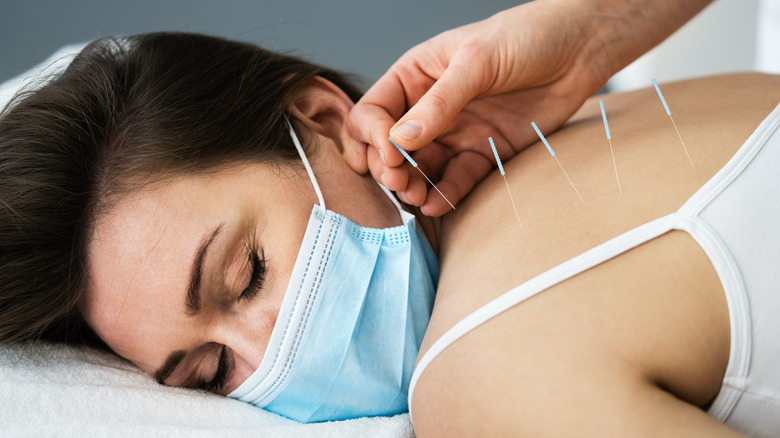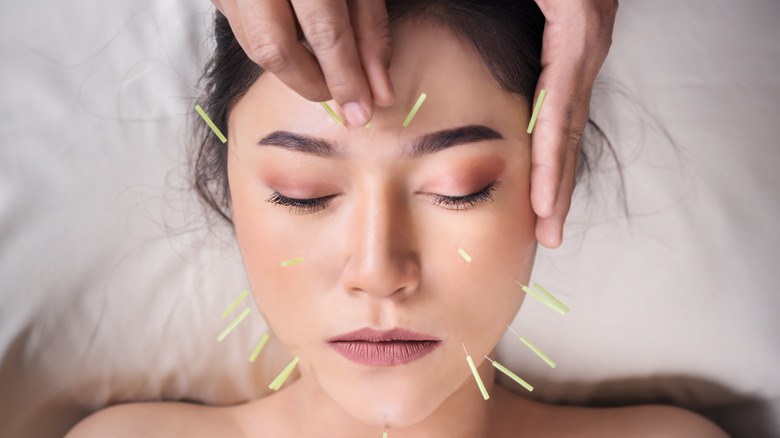Here's What Acupuncture Can And Can't Do For You
Acupuncture is a healing practice and form of alternative medicine popular all over the world. According to the book "A History of Medicine: Primitive and ancient medicine," the practice originated in China and has existed for many centuries. While the exact time when acupuncture came into existence is not clear, it was mentioned in a historical account called "Shih-chi," written around 100 B.C. by Chinese historian Ssu-ma Ch'ien.
The procedure involves the insertion of very thin needles into the skin at some strategic points throughout the body. While it is primarily used as a pain-relief technique, it is nowadays used for a variety of reasons, including weight loss, overall wellness, and managing stress, says the Mayo Clinic. According to Mayo, in Chinese tradition, acupuncture is believed to balance out the flow of energy in the human body, but Western practitioners see it as a means to stimulate nerves, connective tissues, and muscles.
While the idea of inserting needles into your body appears to be scary, practitioners and those who opt for this procedure say that it is predominantly painless. "[Acupuncture is] a minimally invasive method to stimulate nerve-rich areas of the skin surface to influence tissues, gland, organs, and various functions of the body," Paul Kempisty, a New York-based licensed acupuncturist, told Healthline. Acupuncture is popular, perhaps because people swear by its benefits. What can — and can't — the technique do for you?
Does acupuncture really work?
In addition to China, acupuncture is practiced in many countries of the world. According to WebMD, more than 3 million people in the United States use acupuncture to relieve pain and treat other conditions, while in France, one in five people have undergone the procedure. Research has shown that acupuncture can help relieve pain, but if you want to undergo the procedure to treat other problems, then you should probably see your doctor first, because there is no concrete evidence regarding the effectiveness of acupuncture in treating other conditions (via National Center for Complementary and Integrative Health — NCCIH).
For instance, if you are suffering from chronic conditions such as lower back pain, knee pain, neck pain, and osteoarthritis, then acupuncture can be effective for you. Similarly, some studies have shown that acupuncture could also help relieve tension headaches and migraines (via NCCIH). The Center, however, stresses that you should not use acupuncture to avoid seeing a doctor, because certain health conditions could further deteriorate if left untreated. Moreover, you should always check the credentials of an acupuncturist before booking an appointment with them.

